 Noah Stokes is the founder and CEO of CannaGuard Security, a cannabis industry security firm that serves cannabis businesses nationwide. From storefronts to grow ops, CannaGuard helps companies not only meet the standards put in place by state regulators, but also to be prepared for these standards to change, and to make sure that there are contingencies and preventative measures in place as safeguards against theft and robberies.
Noah Stokes is the founder and CEO of CannaGuard Security, a cannabis industry security firm that serves cannabis businesses nationwide. From storefronts to grow ops, CannaGuard helps companies not only meet the standards put in place by state regulators, but also to be prepared for these standards to change, and to make sure that there are contingencies and preventative measures in place as safeguards against theft and robberies.
Noah recently joined our host Shango Los to discuss some of the most common requests his company receives, as well as what types of businesses he works for, the many flaws in the logic used by regulators when defining mandated security protocols, and how cannabis retailers and producers can best prepare for worst case scenarios.
Listen to the podcast using the media player below, or scroll down to read the full transcript!
Subscribe to the Ganjapreneur podcast on iTunes, Stitcher, SoundCloud or Google Play.
Listen to the podcast
Read the full transcript
Shango Los: Hi there and welcome to the Ganjapreneur.com Podcast. I’m your host Shango Los. The Ganjapreneur.com Podcast gives us an opportunity to speak directly to entrepreneurs, cannabis growers, product developers and cannabis medicine researchers all focused on making the most of cannabis normalization. As your host I do my best to bring you original cannabis industry ideas that will ignite your own entrepreneurial spark and give you actionable information to improve your business strategy and improve your health and the health of cannabis patients everywhere. Today my guest is Noah Stokes, founder and CEO of CannaGuard Security, a company providing security services for cannabis companies nationwide. Welcome, Noah.
Noah Stokes: Thank you so much Shango for having me on the show.
Shango Los: Let’s start by giving folks an idea of what it is exactly to be a cannabis security consultant. What services do you provide to these cannabis companies?
Noah Stokes: We’ve been doing this for just over two years now, and it’s been evolving. As we’ve been going we started out specifically with electronic security, so cameras, access control, alarm systems and using some pretty state-of-the-art, high-end systems to make sure that they’re compliant and future proof, can grow with the actual licensees as well as be able to detect potential threats and be able to keep them secure.
Over the last year, and especially the last six months, as Oregon is about to really breakaway with their licenses and really start enforcing regulation we’ve had a lot of our customers requesting us to get into the actual guard side of it, transportation, offsite video monitoring so people can actually have a company monitoring their videos offsite as opposed to having to pay for somebody to be onsite because sometimes that doesn’t make sense financially for them, be able to do background checks and provide ATMs and customized safes that will actually alert them of activities through their alarm system, through their camera system.
POS analytics, if someone does a voided transaction on their POS system it actually sends a realtime alert to the licensee or the managers so that they can see, “Hey, someone voided a transaction, but did the customer still hand them cash? Did they give the cash back?” Even compliance audits so they can self-audit themselves as opposed to having an inspector come in there and tell them all the things that they may or may not be doing correctly. They can prevent any potential violations.
Cash tracking, so our customers can now put something disguised as dollar bills or anything, really, into their cash so if someone did come in and actually rob them they can track it with three different methods of tracking, RFID, cellular tracking, GPS, the whole bit. We wanted to provide our customers with an all-encompassing security solution so that whatever worry they had we can provide them with a solution to help them sleep at night, which is a major thing that our customers complain about, is constantly being worried while they’re there. We give them peace of mind and keep them protected, in compliance with the State.
Shango Los: Do you find that most of your clients are retailers, since that’s where the cannabis and the public come together most often, or are you also finding that you’ve got a lot of folks that are in producing and processing that are concerned about their security where it’s grown and processed?
Noah Stokes: Currently our customer base, about a hundred actual licensed facilities in Oregon and Washington, most of them are retailers, but we have a lot of growers. As they start regulating the actual growers more heavily here in Oregon because they really haven’t on the medical side, so as they start regulating the recreational growers, that’s where most of our business will be. That’s where we really will specialize.
The dispensaries are easier in some ways because they’re a smaller building, they’re more public. It’s less likely that someone is going to come into that facility because generally these dispensaries and retail stores are on a high-traffic road, most of them. The growers, on the other hand, are very remote and they generally have more product on hand and they are easier to get to, outdoor grows, they’re five acres. That’s where we really specialize and we really shine is protecting people in remote areas that if something happened the police aren’t even going to get there coming full speed for 20 minutes.
It’s a 50-50 scenario, and it’s easier to do a dispensary because they’re smaller systems. Once you get into these large, even the indoor grows, that are a 10, 20, 30 thousand square foot facility that has to have camera coverage all over the place for the State as well as camera coverage and the actual security piece of it for internal threats, which is where most likely you’re going to have someone steal something. To have that protected and have it usable and have a policy and procedure in place, you really have to put additional thought and energy and effort into that because it’s such a large facility with nooks and crannies everywhere. We do all of them, and we do them all slightly differently because they’re a different animal.
Shango Los: From working with my own cannabis clients one of the things that they almost uniformly disdain is working their way through the often byzantine regulations at the state level, and yet you’ve chosen to embrace the suck and make it your specialty. I would think that your clients would be thrilled to be able to have a turnkey solution for this. Do you find that universally that the business owners really don’t want to go through the regulations? Are you seeing that with everybody?
Noah Stokes: Absolutely. We saw an opportunity when they first came out with the regulations here in Oregon and obviously going through the process in Washington. The typical client is not someone with an extensive business background, I should say. It’s getting more professional by far. There’s a lot of very professional business people that are getting into the market. There’s also still a high volume of people that are not familiar with filling out the forms and working with the government. Believe me, it’s not fun, it’s not easy. We try to take every ounce of that fear and that confusion out of it. When you do something over and over and over and over and over again you’re going to do it better. You’re going to know what people’s expectations are. It may say one thing, but you know that they’re actually expecting something different.
Because we’ve worked with as many licensees as we have, we’re in process with over 400 licensees in Washington and Oregon that are just waiting to build it out, to get their license applied for. We’ve been in communication with inspectors and the regulators and we’ve been helping the OLCC here in Oregon to actually draft these rules and regulations and do them intelligently so that someone can know, “If I do exactly this I will be compliant.” That’s really what a lot of our customers want to know. The way that, honestly, every state has written their rules and regulations, it’s very vague and very open to interpretation.
People that really want to be regulated, they’re willing to be regulated, they want to do it correctly, they want to know that what they’re doing is the right way to do it, and the states make it very difficult for them to know exactly that they’re doing it. We have to be a lot of times either the bearer of bad news or the people that they have to trust explicitly because we’ve been through this process. We are really asking for a lot of trust based on our experience with these customers because we’re going to tell them they have to spend a certain amount of money on a system that they may not want to spend that money on it, and we have to tell them, “This is the only thing that will actually get you open and passed and regulated.”
We’ve done it enough times now that we can much more confidently say it than when we were first starting. When we first started we had to be really creative with ways that we could ensure compliance without overselling somebody, but also not underselling somebody. We’ve actually passed every inspection we’ve ever done, first day, 100%. We’ve done it by having extra installers and extra cameras and extra wires run because the inspectors have interpreted things differently than anybody else or any other inspectors, but we made it happen. It’s been a huge pain, and, yes, our customers love that we have taken the compliance and taken the regulations and really owned them and made it our business to know exactly what they need and how to best service them.
Shango Los: I bet you that they are certainly smiling when they hear that you’ve passed 100% of your inspections the first time. It brings to mind that any of our listeners who are considering opening cannabis security companies in the newly legalizing and normalizing states that it’s a good reminder for them that in addition to having your own business setup, structured properly, you should also participate with the rules and regulations that are evolving in your state so that you can have a hand in their creation so that you know that you can help companies get to the marks that they’re setting up. It sounds like it’s almost two jobs. There’s a job to setup your own business, and then there’s a second job which is understanding the regulations and how they’re evolving so that as an entrepreneur you can evolve your services to meet this moving target that is state-by-state regs.
Noah Stokes: Yeah, it absolutely is. We just met with the OLCC recently and a good example of that is when they put in their requirements or rules and regulations they call it security system requirements. My question to them, as they’ve asked us to review the draft rules and to give them advice because we’ve reviewed just about every state that’s out there and helped create plans for it, my first question was, “Do you want me to recommend requirements that would keep these facilities secure, or do you want to verify compliance?” Because when you call it a security system people will put these cameras in and use security equipment, but really what they’re doing and what the state’s intent is is to actually verify their compliance versus their priority being the security.
My ploy to them would be, “Hey, please call it a compliance verification system versus a security system because people think, ‘Hey, if I buy some security cameras from Costco and put a bunch of them in that must mean I’m secure.'” No, that means that you can pass your compliance and the State is okay, they can watch you and verify that you’re paying your taxes, but that doesn’t mean that you’re actually secure. They’re very different things. That’s been a big one for us is helping them to understand the difference between secure and compliant.
Shango Los: I think that’s an important delineation between security and compliance, and when we get back from the break we’re going to talk more specifically about the security side, so thanks, Noah. We’re going to take a short break and be right back. You are listening to the ganjapreneur.com Podcast.
Shango Los: Welcome back. You are listening to the ganjapreneur.com Podcast. I’m your host Shango Los. Our guest this week is Noah Stokes of CannaGuard Security. Before the break we were talking about the difference between compliance and security. Compliance meaning your business is in line with the state regulations, but security is actually keeping your money, product and employees safe. Noah, there have been a lot of new technologies introduced in the last few years experience with the development of the internet and IP address and video cameras and cloud services within retail environments. What are a couple of these new technologies that you find especially useful in securing a cannabis retail environment?
Noah Stokes: Absolutely. We have really taken a lot of pride… we really are a technology company first that’s operating in the security space. The actual security components of is a center opened or closed, or is there motion or no motion, those are all relatively simple, but the new technology that’s out today really allows these people to be secure in a way that they’ve never been able to before. When the State comes out with their rules and regulations, for instance Washington, they require a minimum resolution basically VGA resolution.
In the real world I can understand that they’re trying to reduce the sheer volume of recorded video space because it gets to be very, very expensive. You buy a one gigabyte thumb drive and it’s 25 bucks at Best Buy. I think you can still buy a one gigabyte little thumb drive, I’m not really sure. You’re buying 8 and 10 gigabyte hard drives and little thumb drives. The VGA resolution requirements of these states that tried to help out, really I can’t find, we did a search for it, I can’t find a camera that exists that’s a new camera that I’m buying from anywhere, Costco, online, anything, whose actual maximum resolution is VGA. I’m having to take one and two mega pixel cameras and crank down the resolution to VGA quality.
Then in the grand scheme of things they’re requiring motion-based recording or 24/7 recording. The difference there of cost between motion-based recording and 24/7 recording is relatively minimal in the grand scheme of things because memory is so cheap. I can get a 16-camera system, we wouldn’t, but a licensee, I should say, can go down to Costco, get a 16-camera system for $800, and then buy a 6 terabyte external hard drive for $200, and that’s recording 24/7. It’s just such a minimal expense nowadays because of the way technology has gone. They take these rules and regulations from 20 years ago that were written up for liquor licenses or whatever it was and they try to apply them to today, and really it’s just setting the industry up for failure.
We propose 24/7 recording because a security system, again, they’re selling people a security system, or telling them they have to get a security system, but really they’re trying to verify compliance. What I think the State is missing often times and not putting together when they do this is when people buy a security system they have full control over that security system, the owner of the security system.
Security systems are not meant to prevent the owner of that system from tampering with it. It’s meant to catch other people. When the owner of that system happens to be a licensee who is operating in the cannabis space that may or may not have been operating in the black market for years and years and years and may or may not have been paying their taxes, ever, the chances of them manipulating a security system in their favor to provide financial gain are drastically higher than most if not any other industry.
When you can have a motion-based recorded system versus 24/7 someone can just turn the motion recording off anytime they want to from anywhere they want to, so the middle of the night when there’s typically not any motion, if they just turn the motion recording settings off from their house on their laptop in their pajamas at midnight, and then they go into their facility and do whatever they want to, and then turn it back on once they get home when they finish their activities no one will ever know that anything happened because there’s nothing recorded on the video. They’d have to be standing there to catch them.
Shango Los: As a security entrepreneur in the middle of that situation like yourself, that must create some awkward situations where your client is the licensee, but you’re also working on compliance almost representing the State. I know you work for your client, but you are working towards compliance, and so I can imagine you finding loopholes that you’re like, “Oh, we should plug this loophole,” and then on a rare occasion a licensee will go, “No, I think we’re good.” That would put you in an odd place in the middle.
Noah Stokes: We do this very specifically and strategically, but our customers are not the customers that want those loopholes. Those guys don’t call us. We’re not in the business of setting our customers up for failure. When we sell a system the reason people hire CannaGuard is because they want to be compliant, and they want to know that they’re good with the State, and they just want to operate a good business.
We specialize in what things can and can’t be, like ways to divert, and educating our customers and our licensees about that, and we setup notifications because they really want their employees to be honest, they want the people that are working for them to be honest. We typically deal with a different clientele, but if have the internet and YouTube and about 15 extra minutes on your hands you can find out ways to get past a lot of these, especially in a motion-based recorded scenario.
That’s the compliance piece, but to get back to the security aspect we have a lot of cool technologies. The offsite video monitoring is something that I mentioned a little bit ago which is allowing people, it’s kind of like an alarm monitoring center, some place in the country to be able to view those cameras at night or during the day or during cash-counting scenarios. For people that are leaving a facility, so if they’re locking up their dispensary at night and they’re taking the cash and the product out or whatnot they can say, “Hey, I’m leaving in 10 minutes. Can you watch the cameras and make sure that I get into my car and drive away safely?” Then, “Hey, in the morning. I’m coming with the cash and whatever is needed to open up the store that day. Can you make sure there’s nobody waiting for me in the parking lot and that I get inside and I’m able to lock the door?”
They can be offsite and instead of being taken hostage, now this company can monitor what’s happening to ensure that that person is safe. It’s a lot less expensive than having to have a body standing there the entire time, and it’s very easy because they have to have camera coverage everywhere anyway, and these camera systems can be logged into from anywhere. That’s one of the cool things.
We also would provide cloud storage that’s above and beyond what the State requires. If someone gets broken into and let’s say they’re remote and it takes the officer 20 minutes to get there. All someone technically has to do go in there, take 20 minutes, grab what they’re going to grab, and, heaven forbid, they have the alarm code and they know what they’re doing because they’re familiar with the facility, if they go in there and take the DVR that’s recording everything, how’s anybody going to know who it was or how many people it was or where they went?
Shango Los: That’s just like classic movies, right? They’re like, “Quick, grab the tape,” and they grab the tape on their way out with the money.
Noah Stokes: Yeah, but, hey, you’re compliant. We throw in cloud storage so that nobody can mess with it and it records the high-value, high-risk areas and then it’s recorded so that if anybody does tamper with the internet or the power or the server we at least have that recorded. Even like the cash-tracking POS analytics are extra above and beyond things from the State’s perspective. In my opinion they should be pretty common sense things, but it’s an all-cash business. You have a safe full of cash. If you throw in some of these tracking devices either into the bag or the jars. They can make them into anything, so a little packet that goes in the actual jars to keep the marijuana humidity, to keep them long-lasting can also have these tracking capabilities built into something like that.
They throw the jars in their bag, they throw the cash in their bag, and now we’re tracking exactly where they go, anywhere they go, and can find them very easily without having that person to have to prevent them or be a hero. Little services like this that we add in there that let people know that, hey, even if somebody does come in and clean me out during the day in my dispensary they’re just going to track them down in 5, 10 minutes anyway. Yep, take it, go do you thing. Don’t hurt anybody, we’re good to go.
Shango Los: Noah with our last minute here, it sounds like there’s a lot of range of different types of technology that can be used, and some of it, I’m assuming, can get to be quite expensive. Before the first break you were talking about future-proofing some of these technologies. Just briefly for the entrepreneurs who are listening can you explain how to think through future proofing your technology so it doesn’t have to be all re-bought again in 18 months?
Noah Stokes: Yeah. If you talk to people in Colorado and Washington that went through this process there were several regulation changes after the fact that took their camera system, for instance, from something that did qualify and was compliant … Washington, the biggest example and the easiest example, is Washington originally did their plan 45 days, 24/7 recording on every single camera, but they had no frames-per-second requirement. Meaning that frames-per-second is how many frames are taken, so the smoothness of the video, because you’re watching plants grow. Maybe you don’t need 30 frames-per-second like a casino.
What they did about 8 months after issuing licenses and people opening and buying their systems and billing it out is they said, “We feel like 10 frames-per-second on every single camera is really what it should be.” There’s applications where 10 frames-per-second makes sense, but not on every single camera. When someone bought a system and built out, they had enough storage to get them at 3 frames-per-second to get them compliant. Then the State comes in and they have 50 cameras at 3 frames-per-second, and then they flip it to 10 frames-per-second as a requirement after the fact, that’s three and a half times the amount of storage.
You go from 10 terabytes in your system which is maxing out most, even the small ones, and then you go to 35 terabytes. You don’t just flip a switch and turn it to 35 terabytes. You throw that one away and you buy a totally different system. The State wasn’t in the mindset of, “Oh, you’ve already purchased it? Okay, we’ll grandfather you in.” It was, “You have a certain amount of time to do whatever you have to do to get that compliant.”
We saw that happen a few times, and so we made sure that all of our systems have the capability to grow in any form or fashion, video quality, the storage amount, the number of locations that you can have monitored off site. If the State wants the access to it offsite we can create a custom login that’s restricted so they don’t have the admin login. There are little things that you just want to be intentional of when you’re designing one of these systems so that if the State does change their mind, or I should say when they do change their mind that you’re okay, and you’re not having to throw something you bought 6, 8, 12 months ago.
Shango Los: That’s a great explanation. We’ve got to take a short break right here. We’ll be right back. You are listening to the ganjapreneur.com Podcast.
Shango Los: Welcome back. You are listening to the ganjapreneur.com Podcast. I’m your host Shango Los and our guest this week in Noah Stokes of CannaGuard Security. Noah, the one thing that we haven’t talked about is weapons because at the federal level cannabis is still illegal, and at the local level is it legal, and we’re trying to protect cash and cannabis and employees. As a security firm I’m thinking that there’s a chance that your team must carry weapons at some point, and yet there’s this conflict at the federal level. Tell me a little bit about your understanding of your team carrying weapons and how that works at the federal and state level and how they contrast.
Noah Stokes: It’s a touchy subject, for sure. The Cole memo talks about not having weapons, and for our licensees in their dispensary, even retired military and retired police officers that have a registered concealed-carry weapon they cannot have it on the premises with them and having cannabis present. You have cash, you have marijuana, and these guys can’t carry a gun. We get request for that on a regular basis, and we have to be careful with how we deploy that. We’re going to start getting into those services a lot more in this highly-regulated aspect of the recreational here in Oregon. We have armed transport, we have armed guard services. We just have to be careful how we facilitate that, not inside the actual buildings, but more outside the buildings, outside the perimeter, whether it’s follow car.
It really is a silly and archaic rule that has forced people to spend extra money that is not needed. There’s easier and less expensive ways to accomplish this if the Federal law was different. Their intent with that was to keep the cartels from having a table full of gold AK-47s. I get that, but having a retired police officer have a concealed-carry to protect himself in an all-cash marijuana business that probably makes a little bit of sense. Until people, unfortunately, probably get shot in attempted robberies the government’s not really paying that much attention to it. It’s not on their radar, which is scary. We try to give these guys peace of mind in other ways to protect themselves.
Shango Los: For banks being robbed is just a normal course of business, they’re used to it. Banks will often get robbed, they’ve got plans for it, and then they just continue to go on. Do you think we’re at a point where cannabis retailers should expect to be robbed as part of their daily course? Not daily, but it should be something that they are expecting versus a blue moon event?
Noah Stokes: My saying with that is just don’t be the easiest target on the block. Right now security systems, camera systems, alarm systems they are not strictly required. Most of the time they’re not present, and so realistically, unfortunately, there’s so many facilities out there, grows being the biggest targets, they get robbed on a regular basis because they don’t have an alarm system. They don’t have a camera system. Generally these guys aren’t wanting video cameras to be recording everything that they’re doing, and even if it was recording it and somebody stole it they can’t exactly go to the police and say, “Hey. I had a big pile of cash here and a big pile of marijuana, and so if you find it anywhere can you return it to me? Just sent me a picture and I’ll tell you if that’s the one that got stolen from me.”
They can put security systems in. Our customers, we’ve had nobody that’s had a successful attempt, and even a couple even attempts on them. When you put measures in place it drastically reduces that fact. If you have nothing, if you have no cameras, if you have no alarm systems, if you haven’t done anything the chances are it’s probably just a cost of doing business. I’d rather you spend money on a camera system than factor in just getting robbed.
Shango Los: Right. That makes sense. Yeah, I hear that. For the business owners that are listening to this show and probably taking notes, what are your suggestions for them to create better relationships with their local law enforcements so if the day comes and they need to call them they’re already familiar with each other?
Noah Stokes: I think it’s great. If you’re going to do it right then bring the police in, bring the sheriff department, bring anybody else into your facility, the fire department. Let them walk around it, let them see the rooms. Let them see what’s in each room, where the valuables would be kept, where your safe room is. Let them see where the potential threats are, the entries, the exits. Let them meet you, let them see that you’re a normal business person just looking to run a state-legal business like everybody else and you want protections just like anybody else.
They really appreciate that. They love it, they generally have a lot of fun with it. They’ll help you write security plans. They’re not unfamiliar with this industry. They’re familiar with it from two sides, the illegal side and the legal side. Now that it’s been around long enough, so they really appreciate that. They want to know what they’re getting themselves into prior to walking into one of these facilities because they’ve seen it from the illegal black market side, and it’s usually not a fun scenario to walk into. It’s highly recommended to get them involved and just meet them and talk to them and open that line of communication with them so that if something does happen they want to come and help you out because they know that you’re trying to do it legit.
Shango Los: That sounds like really solid advice. Well that’s all the time we have for today. Thanks so much for chatting with us, Noah.
Noah Stokes: Yeah. My pleasure. Thank you so much for having me. You guys are awesome.
Shango Los: Noah Stokes is founder of CannaGuard Security. You can find out more at cannaguardsecurity.com. You can find more episodes of the Ganjapreneur Podcast in the podcast section at ganjapreneur.com. You can also find us on the Cannabis Radio Network website and in the Apple iTunes store. On the ganjapreneur.com website you will find the latest cannabis news, product reviews and cannabis jobs updated daily along with transcriptions of this Podcast. You can also download the ganjapreneur.com app in the iTunes and Google Play Stores. We’re also thrilled this week to announce that you can now find the show on the I Heart Radio Network app bringing Ganjapreneur Podcasts to 60 million mobile devices. Thanks as always to Brasco for producing our show. I’m your host Shango Los.

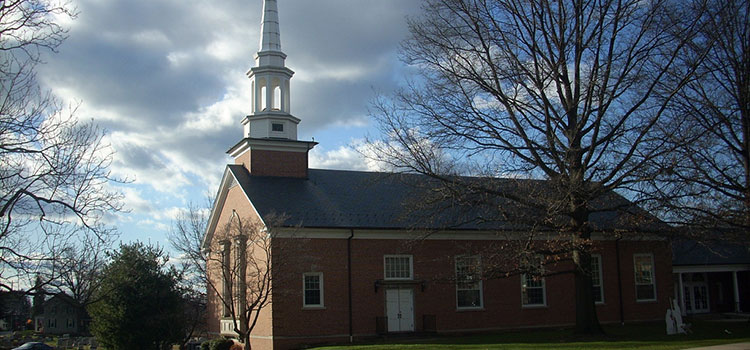


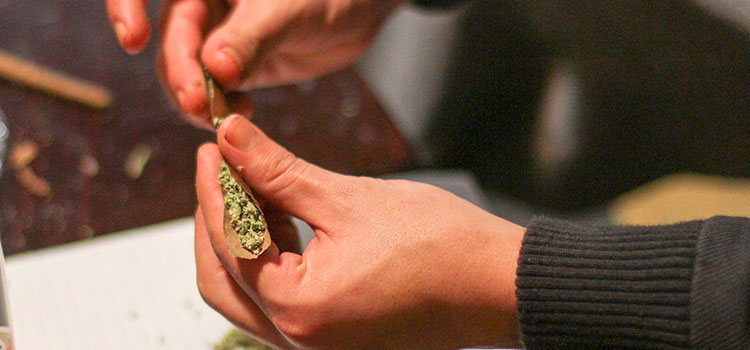



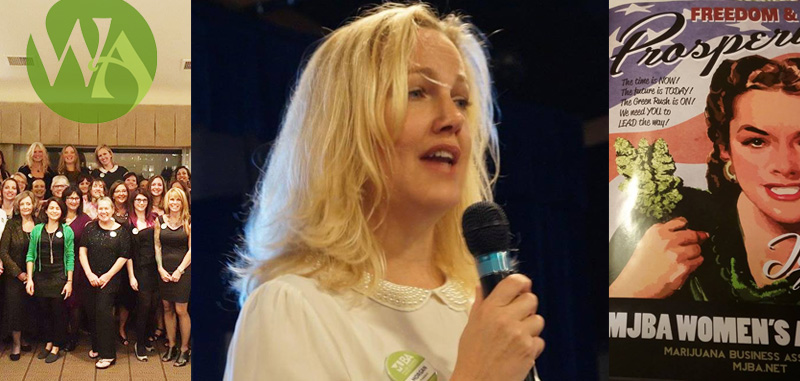

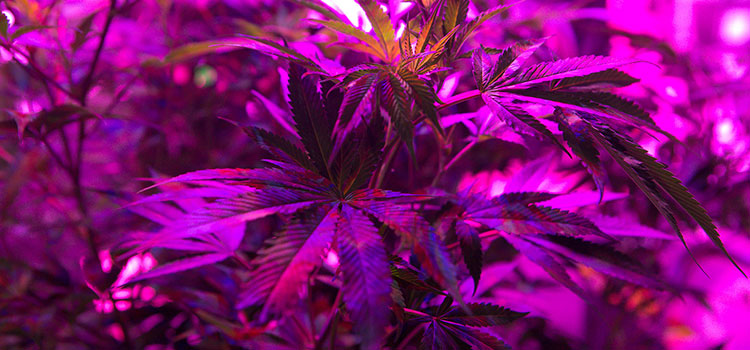
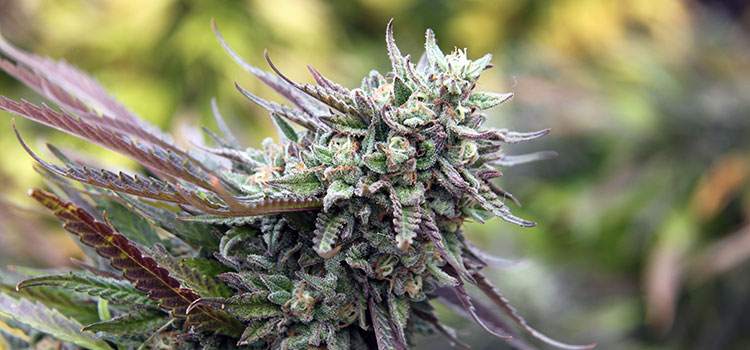

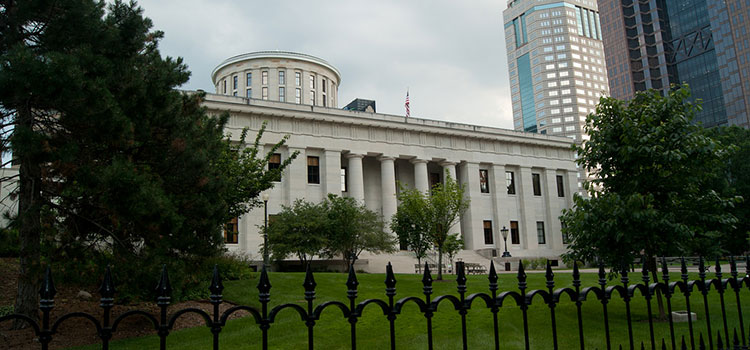

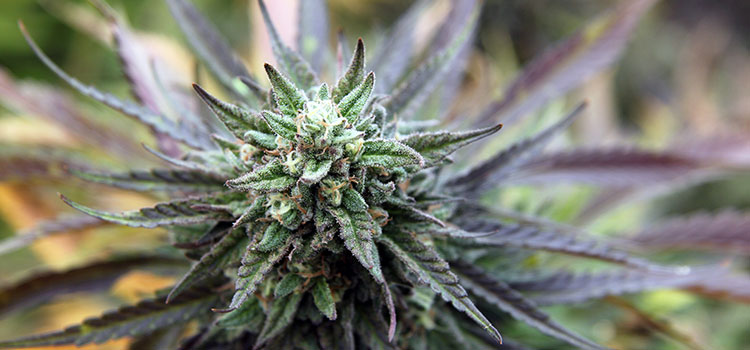
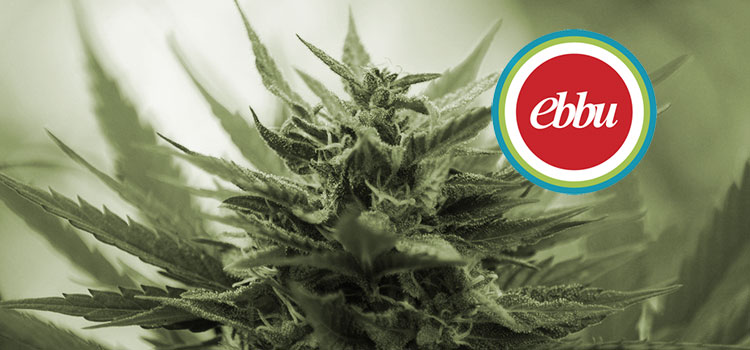

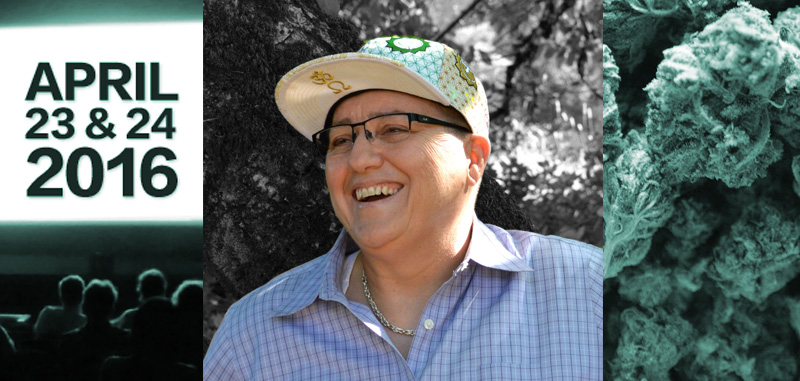
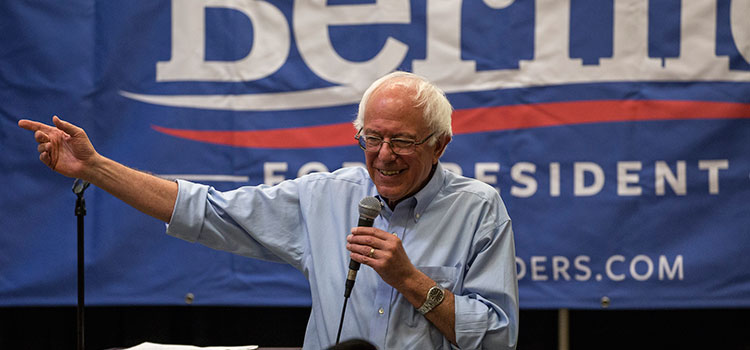
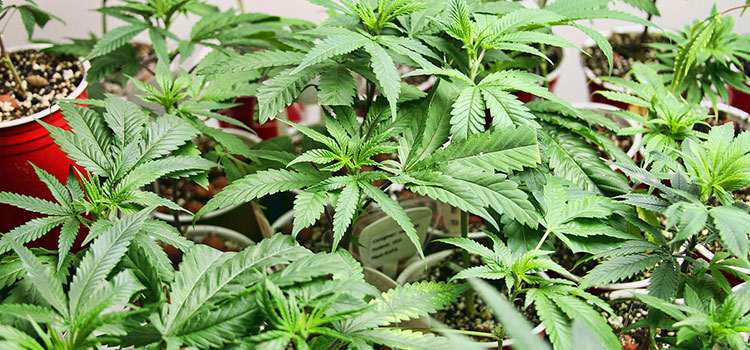
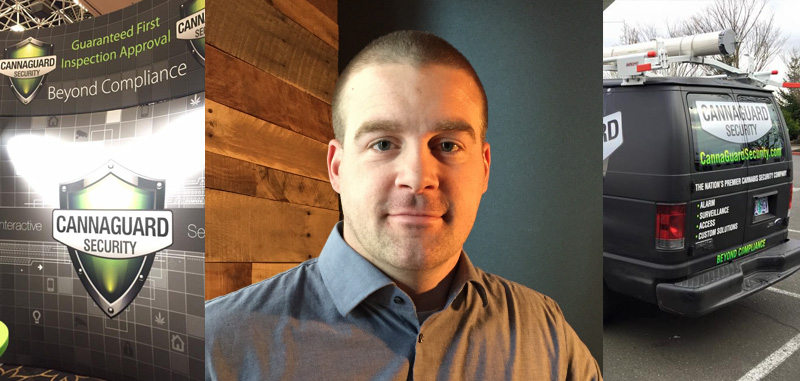
 Noah Stokes is the founder and CEO of
Noah Stokes is the founder and CEO of 


 The Jett brand family is comprised of three separate brands to differentiate between its business lines: Jett Cannabis, Jett Brand, and Jett Licensing. Focusing on creating the most pure and healthy cannabis products, Jett Cannabis will be producing a line of CO2 and solventless concentrates which should reach stores by early November. Their complementary lifestyle brand, Jett Brand, was created to promote the spirit of Colorado on a national scale, doing event promotion and developing a line of apparel and accessory products. Jett Licensing will provide intellectual property and brand licensing to similar industries. Marketing Director Patrick Haske shared their vision with us:
The Jett brand family is comprised of three separate brands to differentiate between its business lines: Jett Cannabis, Jett Brand, and Jett Licensing. Focusing on creating the most pure and healthy cannabis products, Jett Cannabis will be producing a line of CO2 and solventless concentrates which should reach stores by early November. Their complementary lifestyle brand, Jett Brand, was created to promote the spirit of Colorado on a national scale, doing event promotion and developing a line of apparel and accessory products. Jett Licensing will provide intellectual property and brand licensing to similar industries. Marketing Director Patrick Haske shared their vision with us: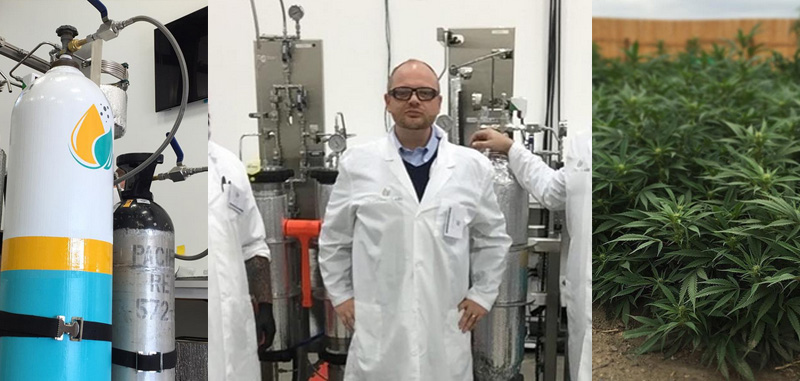
 Chris Kelly is the Vice President and General Manager of
Chris Kelly is the Vice President and General Manager of